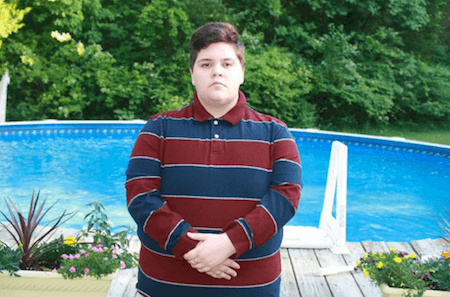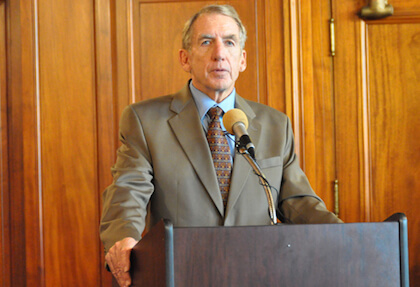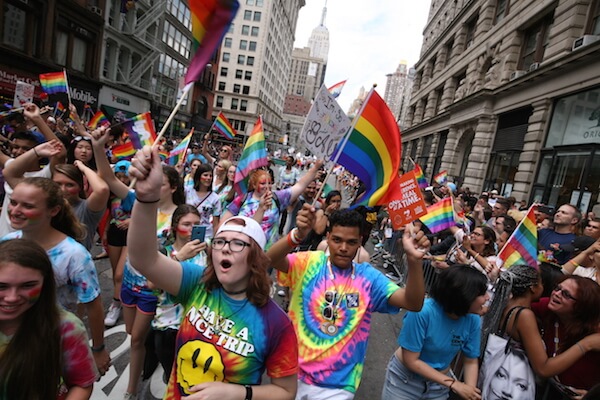Robert F. Kennedy, as attorney general, opposed adoption of Title III of the 1964 Civil Rights Act.
When Congress enacted the Civil Rights Act of 1964, it gave the federal government tools that were used to force schools, businesses, and state and local governments to stop discriminating on the basis of race.
“The CRA of 1964 created or identified substantive rights in some sections, and created a vehicle to enforce those rights or rights created by the Constitution (right to sue for damages or other relief for injuries) in others,” Marcia L. McCormick, a law professor at St. Louis University, wrote in an email. “It also gave federal agencies power to enforce the rights identified either through lawsuits or by withholding federal funds.”
One provision, Title III, was a powerful tool. It authorized the US attorney general to sue any state or local government that denied an individual the “equal protection of the laws” by denying that person the “equal utilization of any public facility.”
Title III was a powerful tool that was rarely, perhaps never, used.
When the act was debated in Congress in 1963, the Kennedy administration opposed Title III. At a 1963 hearing of the House Judiciary Committee, Charles Mathias, a liberal Republican from Maryland, said he had a constituent whose son was denied a marriage license due to a state ban on interracial marriage and asked if the Justice Department might take up such a case.
“That is the question of the attitude of the Justice Department if it received a request for assistance or a complaint which arose under any one of the existing miscegenation laws which are now on the books in several states,” Mathias said. “Would Title III create in its present form any right of action in this regard?”
Robert Kennedy, the US attorney general then, responded, “I think that the Supreme Court has not passed as yet on the constitutionality of those laws so I think we would not be able to tell at the present time.”
“In other words, your present view is that the Justice Department would not act upon any such complaints?” Mathias asked.
“My present view is that I hope that you do not pass Title III so that that question won’t come before us,” Kennedy said.
Of note to the gay and lesbian community, the provision played no role in overturning the state laws that criminalized interracial marriage.
In 1967, 12 years after it refused to hear a challenge to Virginia’s interracial marriage ban, the US Supreme Court voided those laws in the 16 states that still had them. The couple who brought that suit, Mildred and Richard Loving, married legally in the nation’s capital in 1958 and were charged in Virginia when they returned to their home there. The Lovings were represented by the American Civil Liberties Union. The Johnson administration did not join the Loving case.
As a young senator from Hawaii in 1964, Daniel Inouye found widespread opposition to interracial marriage in a tour of Maryland.
In 1964, Democrat Daniel Inouye, the US senator from Hawaii who died on December 17, spent 10 days in Maryland posing as a Japanese reporter asking taxpayers about their views on race, the Washington Post reported.
Inouye told the Post that he “sensed a deep resentment” among people over the civil rights movement and that “the question of interracial marriage kept cropping up,” the Post reported. Inouye assured people that the Civil Right Act “as he read it, made no provisions for interracial marriage.”
Until Loving v. Virginia, there was resistance in every branch of the federal government to confronting the bans on interracial marriage, though there was little demand to overturn those laws.
“It is certainly true that the Supreme Court got interracial marriage wrong until it got it right,” said Evan Wolfson, the founder and president of Freedom to Marry, a pro-gay marriage group. “Many of the most prominent voices in the country refused to step in.”
Currently, 38 states bar same sex marriage by state constitutional amendment, a statute, or both, but 2012 is not 1963. National polls show increased support for same-sex marriage, and after losing better than eight out of 10 ballot initiatives going back to 1978, gay groups reversed that trend by winning four out of four marriage ballot initiatives on November 6. Many leading political figures, including President Barack Obama, have endorsed gay marriage.
But when the US Supreme Court announced on December 14 that it would hear two marriage-related cases, lesbian and gay groups were celebrating, but also muted in their expectations of what could come from the decisions.
“I think rather than spending our time on predicting something we can’t control, we should focus on something we can control,” Wolfson said.
What the community can control is “winning more states and winning over more hearts and minds,” he said. “That’s what we can control and that’s what will give us our best shot.”
So while the circumstances leading to interracial marriage bans being overturned illustrates the political inertia that can slow the pace of change, that history also shows that they ultimately were overturned.
“Judges, like elected officials, can do the right thing, and it helps the country and puts their legacy on the right side of history,” Wolfson said.

































